Israel
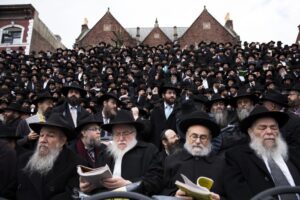
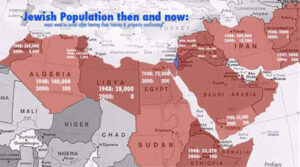 The Law of Return is an Israeli law, which was passed on July 5, 1950. I this law, Jewish people with one or more Jewish grandparent, and their spouses were granted the right to relocate to Israel and acquire Israeli citizenship. Many of the Jewish people had been deported during the Nazi regime and many of these did not survive. Other Jewish people fled Nazi persecution, and now they and the survivors of the holocaust would be given the right to return.
The Law of Return is an Israeli law, which was passed on July 5, 1950. I this law, Jewish people with one or more Jewish grandparent, and their spouses were granted the right to relocate to Israel and acquire Israeli citizenship. Many of the Jewish people had been deported during the Nazi regime and many of these did not survive. Other Jewish people fled Nazi persecution, and now they and the survivors of the holocaust would be given the right to return.
Section 1 of the Law of Return declares “that ‘every Jew has the right to come to this country as an oleh [immigrant].’ In the Law of Return, the State of Israel gave effect to the Zionist movement’s ‘credo’ which called for the establishment of Israel as a Jewish state. In 1970, the right of entry and settlement was extended to people with at least one Jewish grandparent and a person who is married to a Jew, whether or not they are considered Jewish under Orthodox interpretations of Jewish law.”
Each oleh (immigrant) under the Law of Return, was to be given on the day of arrival in Israel, or occasionally at a later date, a certificate confirming their oleh status. At that point, the person then has three months to decide whether they wish to become a citizen and can renounce their prior citizenship during this time. This is a decision that they must think over carefully, even before they make the decision to immigrate. They would have to quit jobs, sell homes (or at least rent them out), pull children out of school, etc. Still, the big decision must be made withing three months. Do they want to stay? If so, they must take the steps to proceed.
There have been changes to the law over the years. Since 2005, the right does not apply to residents of the West Bank or the Gaza strip due to the Citizenship and Entry into Israel Law. The right to an oleh certificate may be denied if the person is engaged in anti-Jewish activity, is a hazard to the public health or security of the state, or has a criminal past that may endanger public welfare. All reasonable reasons to refuse entry. I wish the United States took some of these things seriously.
When Israel became a nation again on May 15, 1948, there was a need to “re-populate” the country with their own people. As of 2021, 3,340,000 Jews have immigrated to Israel. Hundreds of thousands of people who do not have Jewish status under Orthodox Jewish interpretations of halakha received Israeli citizenship, as the law confers citizenship to all offspring of a Jew (including grandchildren) and their spouses. Halakha is often translated as “Jewish Law,” although a more literal translation of it might be “the way to behave” or “the way of 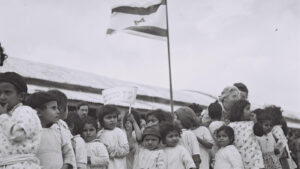
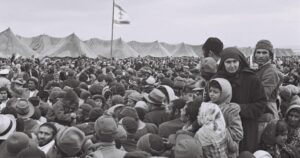 walking.” The Bible also makes reference to this in Isaiah 43:5-6, “Fear not, for I am with you. I will bring your descendants from the east and gather you from the west. I will say to the north, ‘Give them up!’ And to the south, ‘Do not keep them back!’ Bring My sons from afar, and My daughters from the ends of the earth.”
walking.” The Bible also makes reference to this in Isaiah 43:5-6, “Fear not, for I am with you. I will bring your descendants from the east and gather you from the west. I will say to the north, ‘Give them up!’ And to the south, ‘Do not keep them back!’ Bring My sons from afar, and My daughters from the ends of the earth.”
 Hijacking is usually associated with airplanes, but it is certainly not limited to airplanes, nor is it limited to any one country. One of the scariest situations for parents of school children is when their bus is hijacked. That is exactly what happened on December 1, 1988, when five armed criminals, led by Pavel Yakshiyants hijacked a LAZ-687 bus carrying around thirty pupils and one teacher from school 42 in Ordzhonikidze, Soviet Union (now Vladikavkaz in Russia).
Hijacking is usually associated with airplanes, but it is certainly not limited to airplanes, nor is it limited to any one country. One of the scariest situations for parents of school children is when their bus is hijacked. That is exactly what happened on December 1, 1988, when five armed criminals, led by Pavel Yakshiyants hijacked a LAZ-687 bus carrying around thirty pupils and one teacher from school 42 in Ordzhonikidze, Soviet Union (now Vladikavkaz in Russia).
Most countries don’t often concede to the demands of the hijackers, because it doesn’t guarantee the safety of the hostages, but in this case, the local authorities did concede to the hijackers’ demands and provided an Ilyushin Il-76 aircraft to fly the hijackers to Israel. It was a very strange situation, as hijackings go, because first of all, the hostages were released when the demands were met. Meeting the demands of the hijackers unequivocally, often results in the hostages being taken to another location, where the situation just continues to escalate. In this case, however the hijackers landed at Tel Aviv’s Ben Gurion Airport, and the hijackers surrendered to local troops and police without resistance. Then, Israel agreed to extradited to the men to the Soviet Union, where they were sentenced to prison terms. What made that very strange was that at that time Israel and the Soviet Union had no extradition treaty, because relations between the two countries were still severed. All hostages were released. The Defense Minister of Israel at the time, Yitzhak Rabin, criticized Soviet authorities for providing the hijackers with an aircraft and flying them to Israel in exchange for the release of the hostages, thereby making it Israel’s problem.
The hijacking was carried out by Pavel Levonovich Yakshiyants, Vladimir Alexandrovich Muravlev, German Lvovich Vishnyakov, Vladimir Robertovich Anastasov, and Tofiy Jafarov. Yakshiyants and Muravlev were prior convicts, while the others were first time offenders. Yakshiyants, an Armenian, was first convicted when he was 17 and sentenced to two years in prison for theft. That did little to deter him, and he was later sentenced to four years in prison for robbery. Then in 1972, he was sentenced to ten years, again for robbery, but somehow managed to be released on parle in 1979.
What had started out as a field trip, turned scary when a man approached them saying he was the driver sent to take them home. The group of 30–31 schoolchildren had just finished a field trip to a local printing plant when the hijacking occurred. Subsequently, the teacher and her pupils, aged 10 and 11, boarded the bus to find themselves the hostages of five armed people. The group was then used as a human shield and bargaining chip to make sure their demands were met. The hijackers rode to the local obkom, which is “literally the “Washington Province Party Committee” and is a derogatory term used in Russian media and speech to imply that many crucial decisions by political elites of Russia and some other post-Soviet states have been and are agreed with and/or taken in the United States.” The hijackers demanded about 2 million rubles, which is about US$3.3 million at the time, and an aircraft. The authorities agreed, but the airport of Ordzhonikidze was unable to handle the large Ilyushin Il-76 cargo aircraft that was sent. The hijackers were told that they would have free passage to airport of Mineralnye Vody, so they went there. The bus windows were curtained so that the law enforcement units could not see what was happening inside. Russia’s Alpha Group was mobilized for a possible hostage rescue. It was learned that the hijackers were planning to land in Tashkent to pick up a friend then fly to Pakistan, but changed their mind and chose Israel instead. According to Israeli Army commander Major General Amram Mitzna, the hijackers believed they would be safe in Israel because they had heard that recent Israeli elections had produced an anticommunist government. Boy, were they in for a surprise?
The Ilyushin Il-76 cargo aircraft was escorted by Israeli fighter aircraft and landed on a remote darkened runway. It was quickly surrounded by army and police vehicles and ambulances. According to an Ilyushin Il-76 crew member, the hijackers asked whether they had landed in Israel or Syria. They said that if it was Israel,  they would stay. Mitzna said that the hijackers demanded proof that they were actually in Israel. They wanted to hear Yiddish or see a Star of David. When a soldier on the runway spoke a few words in Yiddish, the hijackers left the aircraft with their hands in the air. The hostages were quickly secured and were flown back to Ordzhonikidze. Following the extradition, the ring leaders, Yakshiyants and Murlav were put on trial. In March 1989, Yakshiyants was sentenced by the Supreme Court of Russia to 15 years in prison. Murlav was sentenced to 14 years. The remaining defendants received sentences ranging from three to fourteen years. All of the hostages arrived home safely, none the worse off for their ordeal.
they would stay. Mitzna said that the hijackers demanded proof that they were actually in Israel. They wanted to hear Yiddish or see a Star of David. When a soldier on the runway spoke a few words in Yiddish, the hijackers left the aircraft with their hands in the air. The hostages were quickly secured and were flown back to Ordzhonikidze. Following the extradition, the ring leaders, Yakshiyants and Murlav were put on trial. In March 1989, Yakshiyants was sentenced by the Supreme Court of Russia to 15 years in prison. Murlav was sentenced to 14 years. The remaining defendants received sentences ranging from three to fourteen years. All of the hostages arrived home safely, none the worse off for their ordeal.
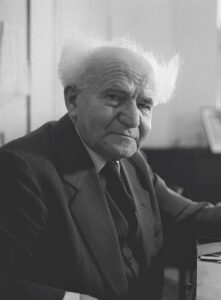
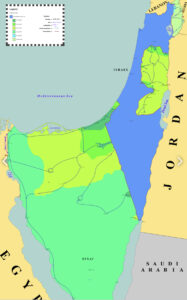 Since the earliest beginnings of Israel, the Arab community has been protesting its existence and trying to remove it from the face of the Earth. I don’t particularly understand what their problem uis. Given the tiny size of Israel compared to the vastness of the Arab nations, why is it so hard to allow them to live in peace? It is, of course a Holy War situation that is unlikely to go away for as long as time continues.
Since the earliest beginnings of Israel, the Arab community has been protesting its existence and trying to remove it from the face of the Earth. I don’t particularly understand what their problem uis. Given the tiny size of Israel compared to the vastness of the Arab nations, why is it so hard to allow them to live in peace? It is, of course a Holy War situation that is unlikely to go away for as long as time continues.
Israel had been a nation way, way back, but when they were taken into captivity, they were scattered to many nations. Once they were freed, they traveled to Israel (I think most people know the Exodus story). Of course, their existence was fought over again and again, finally leading up to the Holocaust. When World War II ended, many of the Jewish people again moved to and populated the Israeli land, but it wasn’t until May 14, 1948, that David Ben-Gurion, the head of the Jewish Agency, proclaimed the establishment of the State of Israel. United States President Harry S Truman recognized the new nation on the same day. Since that time, there have been multiple wars and continuing conflicts that have threatened the existence of the Israeli state.
One such war was the Six-Day War, also called June War or Third Arab-Israeli War or Naksah. It was a short-lived war that took place from June 5, 1967 to June 10, 1967. It was the third of the Arab-Israeli wars. The first took place almost immediately after they were declared a state. The Israeli people have learned to fight for survival all their lives, vowing never to allow another Holocaust to be carried out. Israel’s decisive victory in the Six-Day War included the capture of the Sinai Peninsula, Gaza Strip, West Bank, Old City of Jerusalem, and Golan Heights. Of course, things didn’t end there. The fact that these territories belonged to Israel has been a major point of contention in the Arab-Israeli conflict sin that time.
The Six-Day War had precursors, as most wars do. Prior to the start of the war, the Palestinian guerrilla groups based in Syria, Lebanon, and Jordan randomly began attacking Israel, basically lobbing missiles at them, leading to costly 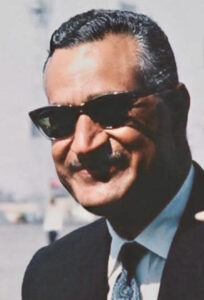
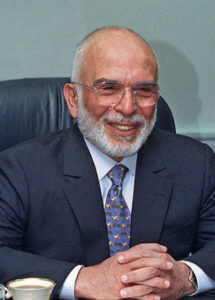 Israeli reprisals. Then, in November 1966 an Israeli strike on the village of Al-Sam in the Jordanian West Bank left 18 dead and 54 wounded, and during an air battle with Syria in April 1967, the Israeli Air Force shot down six Syrian MiG fighter jets. Soviet intelligence reports in May claimed that Israel was planning a campaign against Syria, and although these claims were inaccurate, the accusations further heightened tensions between Israel and its Arab neighbors.
Israeli reprisals. Then, in November 1966 an Israeli strike on the village of Al-Sam in the Jordanian West Bank left 18 dead and 54 wounded, and during an air battle with Syria in April 1967, the Israeli Air Force shot down six Syrian MiG fighter jets. Soviet intelligence reports in May claimed that Israel was planning a campaign against Syria, and although these claims were inaccurate, the accusations further heightened tensions between Israel and its Arab neighbors.
During this time, Egyptian President Gamal Abdel Nasser had come under sharp criticism for his refusing to become involved with Syria and Jordan against Israel. He was accused of hiding behind the United Nations Emergency Force (UNEF) stationed at Egypt’s border with Israel in the Sinai. Under pressure, he moved to unambiguously demonstrate support for Syria on May 14, 1967. Nasser mobilized Egyptian forces in the Sinai on May 18, 1967 and formally requested the removal of the UNEF stationed there. On May 22, 1967, he closed the Gulf of Aqaba to Israeli shipping, thus instituting an effective blockade of the port city of Elat in southern Israel. On May 30, 1967, King Hussein of Jordan arrived in Cairo to sign a mutual defense pact with Egypt, placing Jordanian forces under Egyptian command. Iraq joined the alliance shortly thereafter.
As Israel became aware of the mobilization of its Arab neighbors, early on the morning of June 5, 1967, Israel took preemptive action and staged an air assault that destroyed more than 90 percent Egypt’s air force on the tarmac. A similar air assault incapacitated the Syrian air force. Without cover from the air, the Egyptian army was left vulnerable to attack. The domination in this war became apparent right away, and within three days the Israelis had achieved an overwhelming victory on the ground, capturing the Gaza Strip and all of the Sinai Peninsula up to the east bank of the Suez Canal.
Israel warned Jordan’s King Hussein to stay out of the conflict, but they disregarded the warning, and eastern front was also opened on June 5, 1967, when Jordanian forces began shelling West Jerusalem only to face a crushing 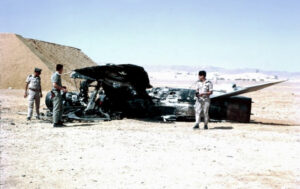
 Israeli counterattack. On June 7, 1967, Israeli forces drove Jordanian forces out of East Jerusalem and most of the West Bank. By June 10, 1967, the war was over and Israel was the obvious winner. It seems to me that the Arab nations should heed the warnings of history, and leave Israel alone, but I suppose that is unlikely. Nevertheless, Israeli land belongs to the Jewish people by the promise of God and they would do well to let it go.
Israeli counterattack. On June 7, 1967, Israeli forces drove Jordanian forces out of East Jerusalem and most of the West Bank. By June 10, 1967, the war was over and Israel was the obvious winner. It seems to me that the Arab nations should heed the warnings of history, and leave Israel alone, but I suppose that is unlikely. Nevertheless, Israeli land belongs to the Jewish people by the promise of God and they would do well to let it go.
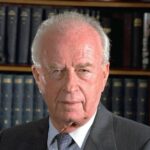
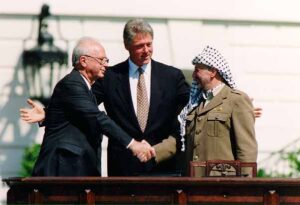 Since time began, people have hoped for peace, and ended up in a battle. While “world peace” will likely never be an option, at least not in this world, governments continue to try, and those who oppose peace continue to do their best to sabotage the plans for peace. Israel has often been at the center of the battle for peace, which makes no logical sense. The other Arab nations have long been after the land, small as it is, that belongs to Israel. I never understood how they could covet the small piece of land that Israel had. The reality is that the Arab nations simply don’t want Israel to exist at all.
Since time began, people have hoped for peace, and ended up in a battle. While “world peace” will likely never be an option, at least not in this world, governments continue to try, and those who oppose peace continue to do their best to sabotage the plans for peace. Israel has often been at the center of the battle for peace, which makes no logical sense. The other Arab nations have long been after the land, small as it is, that belongs to Israel. I never understood how they could covet the small piece of land that Israel had. The reality is that the Arab nations simply don’t want Israel to exist at all.
In 1995, a rally was being held in support of the Oslo Accords at the Kings of Israel Square in Tel Aviv. A number of people had warned Yitzhak Rabin, the fifth prime minister of Israel, that his life could be in danger, but he would not back down. The Oslo Accords was a pair of agreements between Israel and the Palestine Liberation Organization (PLO). The Oslo I Accord was signed in Washington DC, in 1993. The Oslo II Accord was signed in Taba, Egypt, in 1995. The problem with these agreements is that the battle between these two groups goes so much deeper than just who owns the land. These nations are related and have been in a feud since the time of Jacob and Esau in Biblical days. Nevertheless, nations have tried to bring about peace between the two nations ever since the battle began.
On November 4, 1995 (12 Marcheshvan 5756 on the Hebrew calendar) at 9:30pm, at the end of the rally. An Israeli ultranationalist named Yigal Amir, who radically opposed Prime Minister Yitzhak Rabin’s peace initiative, and particularly the signing of the Oslo Accords, took it upon himself, to assassinate Yitzhak Rabin. The Likud leader and future prime minister, Benjamin Netanyahu, told Rabin’s government that withdrawing from any “Jewish” land was heresy, which I would have to agree with, because the land had been given to them by God. They believed that Rabin was probably too secular and too far removed from the Biblical Jewish tradition and Jewish values, but assassination is never the answer.
Conservative rabbis associated with the settlers’ movement prohibited territorial concessions to the Palestinians and forbade soldiers in the Israel Defense Forces from evacuating Jewish settlers under the accords. Some rabbis proclaimed “din rodef” based on a traditional Jewish law of self-defense, against Rabin personally, arguing that the Oslo Accords would endanger Jewish lives. The whole situation, which was “designed” to bring “peace,” took on a completely different tone…chaos. While I would never condone violence or assassination, I 
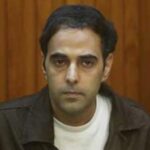 don’t think Israel should ever be forced to give up parts of its land, and unfortunately, any peace agreement with the Palestinians always includes taking Israeli land, when Arab land is already far, far bigger. During the trial, Amir admitted to the assassination of Yitzhak Rabin and claimed that he was justified in doing so, saying that Amir he was “satisfied” and was acting on the “orders of God.” Following the trial, Amir was sentenced to life imprisonment for the murder of Rabin.
don’t think Israel should ever be forced to give up parts of its land, and unfortunately, any peace agreement with the Palestinians always includes taking Israeli land, when Arab land is already far, far bigger. During the trial, Amir admitted to the assassination of Yitzhak Rabin and claimed that he was justified in doing so, saying that Amir he was “satisfied” and was acting on the “orders of God.” Following the trial, Amir was sentenced to life imprisonment for the murder of Rabin.
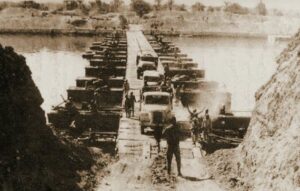
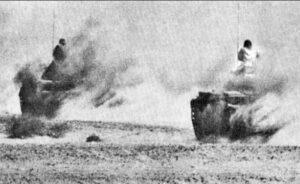 There has not been a time in my memory that was void of Middle East tensions, and perhaps there never been such a time since Biblical times. There have been many attempts and many negotiations trying to achieve Middle East peace, but none have ever really been successful. There have, however, been many wars, conflicts, and attacks on the countries of the Middle East, especially on Israel.
There has not been a time in my memory that was void of Middle East tensions, and perhaps there never been such a time since Biblical times. There have been many attempts and many negotiations trying to achieve Middle East peace, but none have ever really been successful. There have, however, been many wars, conflicts, and attacks on the countries of the Middle East, especially on Israel.
On October 6, 1973, in a surprise attack by Egyptian and Syrian forces on Israel, again threw the Middle East into turmoil. This particular attack threatened to bring the United States and the Soviet Union into direct conflict for the first time since the Cuban Missile Crisis in 1962. The United States and the Soviet Union had a tense relationship already, and although actual combat did not break out between the two nations, the events surrounding what became known as the Yom Kippur War seriously damaged United States-Soviet relations and all but destroyed then President Richard Nixon’s much publicized policy of détente (an end to hostilities).
Going into the war, Egypt and Syria, who were armed with the latest in Soviet weaponry, appeared to have the upper hand, and it looked like the two-front attack might bring victory to Egypt and Syria, who were looking to avenge themselves after their humiliating defeat in the Six-Day War of 1967. Nevertheless, Israeli counterattacks, aided by massive amounts of US military assistance, as well as disorganization among the Syrian and Egyptian forces turned the tide. The Israeli troops drove the Syrian troops back, and Syrians and seized the strategically important Golan Heights. The Israeli forces were even harder on the Egyptian army, forcing them to retreat back through the Sinai Desert, thousands of their troops were surrounded and cut off by the Israeli army.
As concerns deepened over the possibility of US-Soviet involvement in the conflict, Secretary of State Henry Kissinger, together with his Soviet counterparts, eventually arranged a shaky cease-fire. The Israeli troops had no intention of ending their siege of the Egyptian troops, who by this time were low on food and medicine, the Soviets threatened to take unilateral action to rescue them. This brought the situation close to the boiling point, and with tempers flared both in Washington and Moscow, the US military forces went to a Stage 3 alert. In case you didn’t know it, Stage 1 is war, so the volatile situation was about to explode. The threat of war with the US caused the Soviets to back down on their threat, but the damage to relations between the two nations was serious and would not be resolved for a long time, if ever. I’m still not sure that relationship is on anything but shaky ground.
Nevertheless, Kissinger worked feverishly to bring about a peace settlement between Israel, Syria, and Egypt. In what later became known as “shuttle diplomacy,” the secretary of state flew from nation to nation 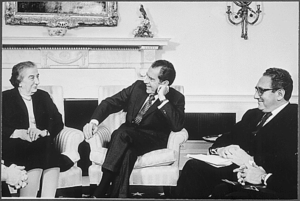
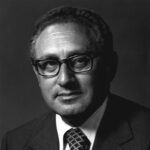 hammering out the details of the peace accord. Finally, a little more comfortable with things, Israel began to withdraw its troops from some of their positions in both the Sinai and Syrian territory. For their part, Egypt promised to forego the use of force in its dealings with Israel. Syria only grudgingly accepted the peace plan, but they remained adamantly opposed to the existence of the Israeli state…a feeling that still exists among many Middle Eastern nations to this day.
hammering out the details of the peace accord. Finally, a little more comfortable with things, Israel began to withdraw its troops from some of their positions in both the Sinai and Syrian territory. For their part, Egypt promised to forego the use of force in its dealings with Israel. Syria only grudgingly accepted the peace plan, but they remained adamantly opposed to the existence of the Israeli state…a feeling that still exists among many Middle Eastern nations to this day.
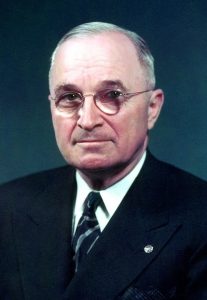 Some presidents are destined to greatness, and some are thrown into it. Some qualify in both categories. President Harry S Truman was born in Lamar, Missouri, on May 8, 1884. He was the oldest child of John Anderson Truman and Martha Ellen Young Truman. As is often tradition in families, he was named for his maternal uncle, Harrison “Harry” Young. His middle initial, “S” was to honor his grandfathers, Anderson Shipp Truman and Solomon Young. Truman’s brother, John Vivian, was born soon after he was, followed by sister Mary Jane.
Some presidents are destined to greatness, and some are thrown into it. Some qualify in both categories. President Harry S Truman was born in Lamar, Missouri, on May 8, 1884. He was the oldest child of John Anderson Truman and Martha Ellen Young Truman. As is often tradition in families, he was named for his maternal uncle, Harrison “Harry” Young. His middle initial, “S” was to honor his grandfathers, Anderson Shipp Truman and Solomon Young. Truman’s brother, John Vivian, was born soon after he was, followed by sister Mary Jane.
President Truman was the 33rd President of the United States, becoming president after the death of President Franklin D Roosevelt. He was a lifetime Democrat, although he might not recognize the party today, and as we have seen, there are good and bad politicians in both parties. Following the death of Roosevelt, who was rather anti-Israel, Truman implemented the Marshall Plan to rebuild the economy of Western Europe and established both the Truman Doctrine and NATO to contain the expansion of communism. He went on to propose numerous liberal domestic reforms, but few were enacted by the Conservative Coalition that dominated the Congress at 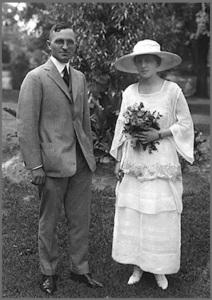 that time. While some of his policies, were not good for America or the world, he was known for his support of Israel. On May 14, 1948, Prime Minister David Ben-Gurion read the proclamation of nationhood. Striking the speaker’s table for emphasis, he announced, “The name of our state shall be Israel.” It was a noble effort, but the new state would need to be recognized to carry much weight.
that time. While some of his policies, were not good for America or the world, he was known for his support of Israel. On May 14, 1948, Prime Minister David Ben-Gurion read the proclamation of nationhood. Striking the speaker’s table for emphasis, he announced, “The name of our state shall be Israel.” It was a noble effort, but the new state would need to be recognized to carry much weight.
Shortly before making his speech, President Truman made some last-minute changes, which are still visible on the speech. The American statement recognized the new State of Israel. Israel’s American recognition came shortly after midnight in Palestine, just a few minutes after the new nation was proclaimed. There were a number of nations who did not want Israel to be a nation again, but President Truman took matters into his own hands, and it became a reality. For his help, President Truman was gifted a Torah from Dr Chaim Weizmann, who was the first president of the new state of Israel, during Weizmann’s visit to the White House on May 25th, 1948. I suppose some people might disagree, but for me, this was the crowning moment of Truman’s presidency.
After his wartime service, Truman returned to Independence, where he married Bess Wallace on June 28, 1919. 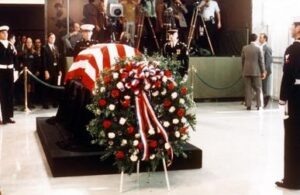 The couple had one child, Mary Margaret Truman. On December 5, 1972, Truman was admitted to Kansas City’s Research Hospital and Medical Center with pneumonia. He developed multiple organ failure, fell into a coma, and died at 7:50am on December 26, 1972, in Independence, Missouri at the age of 88. Bess Truman opted for a simple private service at the library rather than a state funeral in Washington. A week after the funeral, foreign dignitaries and Washington officials attended a memorial service at Washington National Cathedral. Bess died in 1982 and is buried next to Harry at the Harry S Truman Library and Museum in Independence, Missouri.
The couple had one child, Mary Margaret Truman. On December 5, 1972, Truman was admitted to Kansas City’s Research Hospital and Medical Center with pneumonia. He developed multiple organ failure, fell into a coma, and died at 7:50am on December 26, 1972, in Independence, Missouri at the age of 88. Bess Truman opted for a simple private service at the library rather than a state funeral in Washington. A week after the funeral, foreign dignitaries and Washington officials attended a memorial service at Washington National Cathedral. Bess died in 1982 and is buried next to Harry at the Harry S Truman Library and Museum in Independence, Missouri.
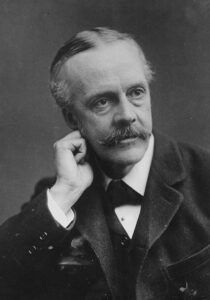 For a number of years Israel had no place to call home. That sounds like a strange thing, but for the nation of Israel, it was not a new thing. Biblical history tells us of a number of times that Israel’s God-given land was taken from them for a time, and they were taken into captivity. Even after the captivity the Jewish people were displaced from their promised land. They were also persecuted and subject to racial discrimination.
For a number of years Israel had no place to call home. That sounds like a strange thing, but for the nation of Israel, it was not a new thing. Biblical history tells us of a number of times that Israel’s God-given land was taken from them for a time, and they were taken into captivity. Even after the captivity the Jewish people were displaced from their promised land. They were also persecuted and subject to racial discrimination.
That began to change when on November 2, 1917, Foreign Secretary Arthur James Balfour wrote an important letter to Britain’s most illustrious Jewish citizen, Baron Lionel Walter Rothschild, expressing the British government’s support for a Jewish homeland in Palestine. I can only imagine how the Baron felt. This was like having someone offer you the moon. It was something the Jew never thought they would see again. Many didn’t think they would live long enough to see it. The letter would eventually become known as the Balfour Declaration, and it was the start of something good.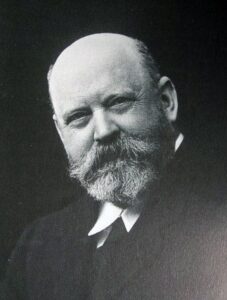
Because of concerns over the direction World War I was going, the British were very supportive of the Zionist movement. Lloyd George among others, held a genuine belief in the righteousness of Zionism, but Britain’s leaders also hoped that a statement supporting Zionism would help gain Jewish support for the Allies. On November 2, Balfour sent his letter to Baron Rothschild, who was a prominent Zionist and a friend of Chaim Weizmann, stating that: “His Majesty’s Government view with favor the establishment in Palestine of a national home for the Jewish people.”
The influence of the Balfour Declaration on the course of post-war events was immediate: According to the “mandate” system created by the Versailles Treaty of 1919, Britain was entrusted with the administration of Palestine, with the understanding that it would work on behalf of both its Jewish and Arab inhabitants. In 1948, the Balfour Declaration was scheduled to expire and Great Britain would no longer rule Palestine. The future of the Jewish people was at stake. The question over what to do with the  turbulent country was turned over to the United Nations. They, at the insistence of President Harry Truman, eventually decided to create the new country of Israel, specifically as a promised homeland for Jewish people. The new country was to be located across the various holy locations in which many events of the Old Testament occurred. The Jewish people were back in the promised land.
turbulent country was turned over to the United Nations. They, at the insistence of President Harry Truman, eventually decided to create the new country of Israel, specifically as a promised homeland for Jewish people. The new country was to be located across the various holy locations in which many events of the Old Testament occurred. The Jewish people were back in the promised land.
That was when United States President Harry Truman became the first world leader to officially recognize Israel as a legitimate Jewish state. On May 14, 1948, only eleven minutes after its creation the decree was delivered. His decision came after much discussion and advice from the White House staff, all of whom had differing viewpoints. Some advisors felt that creating a Jewish state was the only proper response to the Holocaust and would benefit American interests. Others took the opposite view, concerned about that the creation of a Jewish state would create more conflict in an already tumultuous region. No matter what happens, it was the right thing to do.
 When a plane comes down, there is always a reason. It might be mechanical, weather, the human factor, or a combination of these. Most often we don’t know the real and complete cause for a long time. On October 4, 1992, an El-Al Boeing 747 cargo jet was scheduled to bring 114 tons of computers, machinery, textiles and various other materials from Amsterdam to Tel Aviv, Israel. At 6:30pm that Sunday, Captain Isaac Fuchs piloted the jet, carrying two other pilots and one passenger, out of Schipol Airport in good weather. It was set to be a nice flight, but just minutes after takeoff, fires suddenly broke out in the plane’s third and fourth engines. Just as suddenly, they fell right off the wing. Of course, this threw the crew for a loop…literally!!
When a plane comes down, there is always a reason. It might be mechanical, weather, the human factor, or a combination of these. Most often we don’t know the real and complete cause for a long time. On October 4, 1992, an El-Al Boeing 747 cargo jet was scheduled to bring 114 tons of computers, machinery, textiles and various other materials from Amsterdam to Tel Aviv, Israel. At 6:30pm that Sunday, Captain Isaac Fuchs piloted the jet, carrying two other pilots and one passenger, out of Schipol Airport in good weather. It was set to be a nice flight, but just minutes after takeoff, fires suddenly broke out in the plane’s third and fourth engines. Just as suddenly, they fell right off the wing. Of course, this threw the crew for a loop…literally!!
Captain Fuchs knew he needed to dump the plane’s fuel and he spotted a lake nearby. He assumed he would have enough time to dump the fuel and then head back to the airport, but the plane did not have enough power to make the return trip. They were six miles short of the airport when Fuchs radioed, “Going down,” and the plane plunged straight into an apartment building in the Bijimermeer section of Amsterdam. The crash was followed by a massive fireball that exploded through the building. Firefighters rushed to the scene. The fire was horrific, and by the time the fire was under control, about 100 people were dead. No one knew the exact number, because the explosion made body identification extremely difficult. Unfortunately, the building housed mainly undocumented immigrants from Suriname and Aruba, also  making the number of casualties harder to ascertain.
making the number of casualties harder to ascertain.
When the accident investigation was completed, it was found that like a similar accident in Taiwan less than a year earlier, the problem was found to be related to a fuse pin, part of the mechanism that binds the engines to the wings, so in both cases, the problem was caused by fatigue and the ultimate failure of this part. Sadly, it often takes a tragedy of this magnitude to bring about the change that puts closer inspections in play. Of course, the ultimate price paid is in the lives lost.
 Just imagine living in a place where owning or even borrowing a book could get you, and anyone who gave you a book, killed. During the Holocaust, the Jews and other nationalities and religious groups who didn’t fit in with the Aryan race, were considered non-people, and therefore expendable. They were not allowed to live like normal people. They were considered “expendable.” Their lives were not worth the trouble it took to care for them, even their fiends and neighbors were expected to turn them over to be deported to the ghettos and even killed. They were often powerless to help themselves. Still, most of them never lost hope. When the Nazis began to occupy Czechoslovakia in 1939, the persecution of the Jews began almost immediately. Things were hard for everyone, but the children were often in more peril than anyone else. Many were to young to work and that made them even less “important” to the Nazis. To make matters worse, they were often separated from their parents…everything they knew was stripped from them.
Just imagine living in a place where owning or even borrowing a book could get you, and anyone who gave you a book, killed. During the Holocaust, the Jews and other nationalities and religious groups who didn’t fit in with the Aryan race, were considered non-people, and therefore expendable. They were not allowed to live like normal people. They were considered “expendable.” Their lives were not worth the trouble it took to care for them, even their fiends and neighbors were expected to turn them over to be deported to the ghettos and even killed. They were often powerless to help themselves. Still, most of them never lost hope. When the Nazis began to occupy Czechoslovakia in 1939, the persecution of the Jews began almost immediately. Things were hard for everyone, but the children were often in more peril than anyone else. Many were to young to work and that made them even less “important” to the Nazis. To make matters worse, they were often separated from their parents…everything they knew was stripped from them.
In 1942, when a girl named Dita Polachova was 13 years old, she and her parents were deported to Ghetto Theresienstadt life got even worse than it was before. Later they were sent to Auschwitz, where Dita’s father died. She and her mother were sent to forced labor in Germany and finally to a concentration camp called Bergen-Belsen. Dita’s mother died at Bergen-Belsen. Even in the face of so much sadness in her life, Dita never gave up. She risked her own life to protect a selection of eight books smuggled in by prisoners of Auschwitz. She stored the books in hidden pockets in her smock, and circulated them to the hundreds of children imprisoned in Block 31. Books were forbidden for the prisoners in the camps. The Nazis didn’t want them to have any knowledge of the outside world, or access to any kind of education materials or any books. The Nazis believed that none of these people were going to survive their stay in the camps anyway, so they didn’t need to do anything but work and die.
The prisoners had different ideas. Within the walls, there was a family camp known as BIIb. It was a place where the children could play and sing, but school was prohibited. Nevertheless, the Nazis were not able to enforce their will on the people. In spite of the orders of the Nazis, Fredy Hirsch established a small, yet influential school to house the children while their parents slaved in the camp. The materials were the biggest problem. The books, had to be hidden from the Nazi guards at all costs. Hirsch selected Dita, a brave and independent young woman from Prague to take over as the new Librarian of Auschwitz in January of 1944. Dita was a brave girl, who took her responsibility seriously.
While her parents are trying to stay alive in Auschwitz, Dita was fighting her own battle to preserve the books that bring joy to the children in the camp. The books are one of the few things that allow the children to escape from the walls in which they are surrounded, even if just for a moment. As the war progresses, Dita continues to diligently serve the teachers and children of Block 31. Then, Dita’s situation grew much worse. Her father passed away in the camp due to pneumonia. Dita and her mother are left alone to fight the battle on their own. Dita’s mother is grew weaker with age, and Dita knew she had to assume more responsibility. Dita is aware of the fact that the camp is simply a front to produce Nazi propaganda. She began to fight despair, as she struggles to feel the value in her life. By March 1944, the feeling of hopelessness grows. The Nazis announce that the inmates who arrived in September will be transferred to another division, which is really code for  murder. The BIIb continued until they heard that the Nazis are going to liquidate the family camp and separate the fit to work from the rest. Dita’s mother Liesl, was grown old and very weak by now. She was able to sneak into the group that is fit to work along with her daughter, narrowly. They were sent to the Bergen-Belsen concentration camp. Just when Dita gets to the point where she feels this might be the end, the Allied forces liberate the camp, but it is too late for Dita’s mother, who died just after the English arrived. Dita is now free, but it has been at great cost…the kind most of us cannot begin to comprehend. Dita later met and married Otto Kraus, an author, and they settled in Israel where they were both teachers.
murder. The BIIb continued until they heard that the Nazis are going to liquidate the family camp and separate the fit to work from the rest. Dita’s mother Liesl, was grown old and very weak by now. She was able to sneak into the group that is fit to work along with her daughter, narrowly. They were sent to the Bergen-Belsen concentration camp. Just when Dita gets to the point where she feels this might be the end, the Allied forces liberate the camp, but it is too late for Dita’s mother, who died just after the English arrived. Dita is now free, but it has been at great cost…the kind most of us cannot begin to comprehend. Dita later met and married Otto Kraus, an author, and they settled in Israel where they were both teachers.
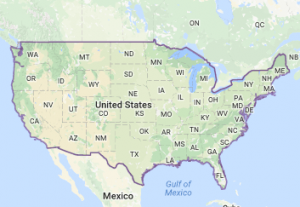 For many years the United States and Russia, at one time the Soviet Union, have had an unusual relationship. Depending on what Russia is trying to do, they might be our enemy, or they might be our ally. I understand that different nations have different goals, different values, and different motives, but it still seems odd to me that in one war, we could be allies and in another war, we become enemies. It could seem a little bit like two childhood friends, who are best friends one minute and worst enemies the next minute. The only exception would have to be the fact that trust doesn’t really fit in with the rest of the characteristics of the relationship between the United States and Russia. I suppose that becoming allies then, becomes a matter of finding an enemy who is doing things you can’t accept, and another enemy who agrees with you on your dislike of the actions of the first enemy…if that makes sense. I think that my prior statement makes as much sense as the United States being an ally of Russia, but that is what they have been…sometimes. I think the most difficult part of that kind of relationship would have to be the point when the relationship turns from ally to enemy again, because it really is inevitable.
For many years the United States and Russia, at one time the Soviet Union, have had an unusual relationship. Depending on what Russia is trying to do, they might be our enemy, or they might be our ally. I understand that different nations have different goals, different values, and different motives, but it still seems odd to me that in one war, we could be allies and in another war, we become enemies. It could seem a little bit like two childhood friends, who are best friends one minute and worst enemies the next minute. The only exception would have to be the fact that trust doesn’t really fit in with the rest of the characteristics of the relationship between the United States and Russia. I suppose that becoming allies then, becomes a matter of finding an enemy who is doing things you can’t accept, and another enemy who agrees with you on your dislike of the actions of the first enemy…if that makes sense. I think that my prior statement makes as much sense as the United States being an ally of Russia, but that is what they have been…sometimes. I think the most difficult part of that kind of relationship would have to be the point when the relationship turns from ally to enemy again, because it really is inevitable.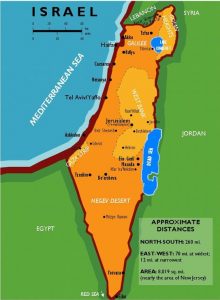
It is historical fact, that over the years the Untied States and Russia have found themselves on opposite sides of a war…even threatening to blow each other up with a nuclear bomb, but so far, both have also hesitated to take things to that level, because the start of that kind of war would likely bring inhalation, since each country has the ability to know that such an attack has started. It’s a good thing that technology has given us that ability, because if we had the nuclear bombs we now have and no way the know that an attack had commenced, one nation could easily wipe out another. Russia has often tested the United States when they have moved to attack weaker nations for the things they wanted, such as oil, food, and power. Their actions left the United States with no other options but to fight against the nation that was sometimes an ally. It has happened in the past, and it will happen again in the future, because Russia remains an enemy of Israel, and that at the very least, is a situation in which the United States would want to act. Israel has always been our ally…not a sometimes ally, and if we are able, we would protect them. At least I pray that we would.
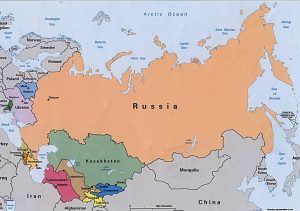 The biggest factor to affect the relationships between countries is their leaders. Most of the history of the United States has found our leaders acknowledging and even embracing our longtime, and very important friendship with Israel. Nevertheless, some leaders, like our current president, have made it clear that Israel is in a precarious position in the world. I am thankful that our president elect has told us that he will be a friend to Israel and other nations that have been oppressed by power nations in the past. It remains to be seen, exactly where Russia will be in this scenario. It is my hope that they will be an ally, but I know that they are still an enemy of our friends, and that can only make us sometimes allies.
The biggest factor to affect the relationships between countries is their leaders. Most of the history of the United States has found our leaders acknowledging and even embracing our longtime, and very important friendship with Israel. Nevertheless, some leaders, like our current president, have made it clear that Israel is in a precarious position in the world. I am thankful that our president elect has told us that he will be a friend to Israel and other nations that have been oppressed by power nations in the past. It remains to be seen, exactly where Russia will be in this scenario. It is my hope that they will be an ally, but I know that they are still an enemy of our friends, and that can only make us sometimes allies.

